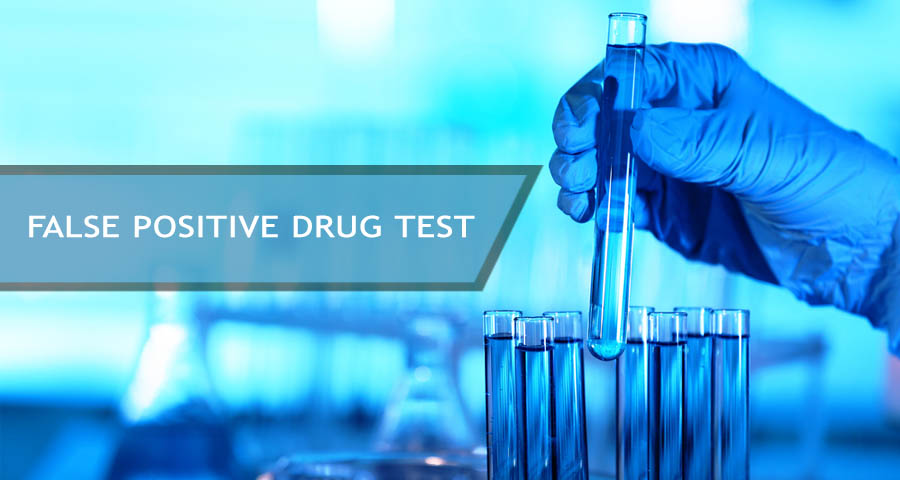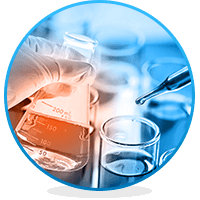False Positive Drug Test: What Food & Medications To Blame?

Strangely enough, common food items or medications might be the reason that one had a false positive drug test. Discover in detail about who are the real culprits. Firstly, a false positive drug test can be a devastating news for patients and their families and friends. Furthermore, It can take its toll on the professional and social life as well. Therefore, learning about its causes will help to take necessary precautions before one finally goes for a drug test.
One may need to have drug abuse tests at college, workplace or to fulfill certain legal requirements. Usually, these tests analyze the urine sample. However, the doctor may ask for other specimens like saliva, hair or blood.
Drug abuse tests detect the presence of amphetamines, cannabinoids, cocaine, heroin and phencyclidine in the specimens. Regrettably, no drug test can have 100% accuracy. As a result, one might end up having a positive result for drugs they did not take. In addition, a number of food items and some prescription or OTC medicines can also turn the test results against a patient.
Table of Contents
False Positive Drug Test: An Overview
A false positive drug test means that one gets a positive result for the drug but in reality, they didn’t take it. One might be wondering how it is possible for to test positive if one haven’t taken any drugs. However, it’s quite possible. And studies suggest false positive test results occur in 5 to 10% of the total cases.
How Does False Positive Drug Test Occur?

False positives occur when the analytical drug detection method recognizes some of the molecules in the body as drugs. Due to some errors in the analysis, it fails to differentiate between the drug molecule and other structurally similar molecules. Consequently, after a positive test, a person will need other tests to confirm abuse of the drug.
A drug test commonly involves the use of Enzyme-mediated Immunoassay (EIA). Because this test offers the privilege of mass screenings, quick results and low cost. As a result, most doctors prefer EIA. However, this test is not error-free and can lead to false positive results.
EIA uses a complex of enzymes and antigens. In addition, the test results depend on whether the drug or the antigen binds to the antibody present in the body. Even if one has a very small quantity of the drug in the body, it binds to the antibody leaving the enzyme free. Next, the free enzyme produces certain signals which are detected by an instrument called spectrometer.
If there are no drugs, the antigen binds to the antibody in the enzyme-antigen complex thus limiting the activity of the enzyme. Consequently, the limited enzyme activity means the spectrometer cannot measure the signals.
Firstly, false positive drug test can occur due to a mismatch between the antibody and the substance. This could be chemically related to the drug or its metabolites. Sometimes, people might eat something without realizing that they contain trace amounts of the drug or related substances. For example, bagels, rolls, and pastries contain certain amounts of poppy seeds that may give a false positive result for morphine.
In any case, when EIA shows positive, one’ll need to confirm it using a more advanced technique called GC-MS. (Gas chromatography Mass Spectroscopy)
What Can Cause A False Positive Drug Test?
Incidentally, certain medications, both prescription and OTC, can cause a false positive drug test. It is because many of the constituents in these medications might be chemically similar to the drugs being tested.
Here are some medications which might give a false positive result:
- Quinolones: Antibiotics such as ofloxacin, gatifloxacin, and ciprofloxacin can give positive test results for opiates and phencyclidine.
- Rifampin: This first line antitubercular medication might be the cause for the positive opiate test.
- Verapamil: Verapamil is an antihypertensive medication that may cause positive methadone test in some cases.
- Diphenhydramine: Antiallergic medication diphenhydramine may trigger positive results for methadone, opiates, and phencyclidine.
- Antidepressants: Sertraline may show positive results for diazepam.
- Analgesics: These include common OTC pain medications like ibuprofen and Naproxen.
- Certain OTC products such as anti-cold tablets that contain pseudoephedrine could be the reason why you tested positive for amphetamines.
Note: This list does not contain all the medications that might cause a false positive drug test. Therefore, it’s important to tell a doctor about all the drugs (prescription or OTC), supplements, and food items.
Factors That may Cause False Positive Drug Test
- When was the test provided?
- If there are metabolic products of the actual drug in the body?
- Sensitivity of the detection technique
Does Positive Drug Test Mean That One Is A Drug Abuser?
In conclusion, a false positive drug test does not mean that patient 100% abuses drugs. It means one need to recheck the diet or medication. In any case, if the test is positive, the patient should consult the doctor and take another test to confirm. Patients can learn more about the false positive drug test, drug addiction or aspects of drug abuse or other tests.
- Hadland S. E., Levy S. Objective Testing: Urine and Other Drug Tests. Child and Adolescent Psychiatric Clinics of North America. 2016; 25(3): 549–565. doi:10.1016/j.chc.2016.02.005. https://www.ncbi.nlm.nih.gov/pmc/articles/PMC4920965/.
- Shafiq Q., Mutgi A. Urine opiate screening: false-positive result with levofloxacin. Canadian Medical Association Journal. 2010; 182(15): 1644–1645. doi:10.1503/cmaj.091508. https://www.ncbi.nlm.nih.gov/pmc/articles/PMC2952012/.
